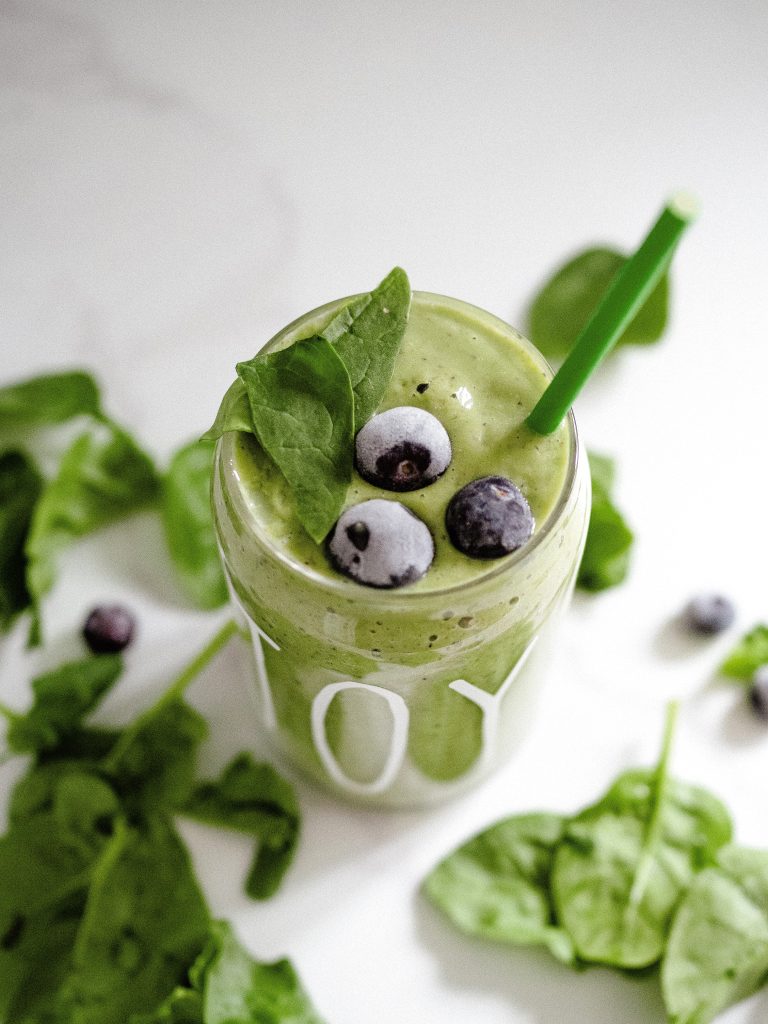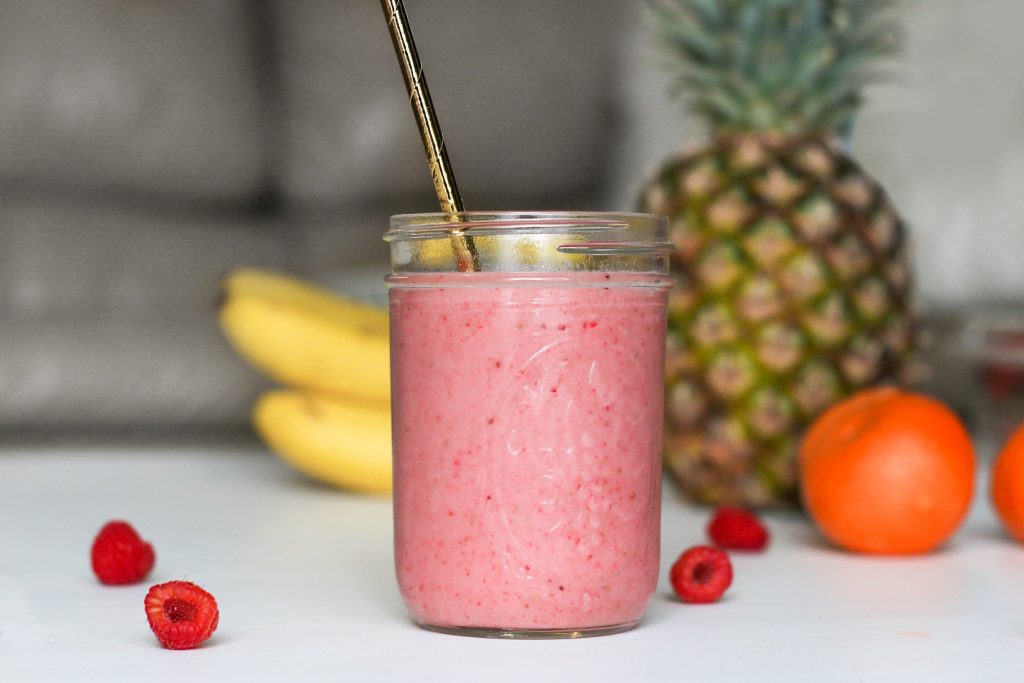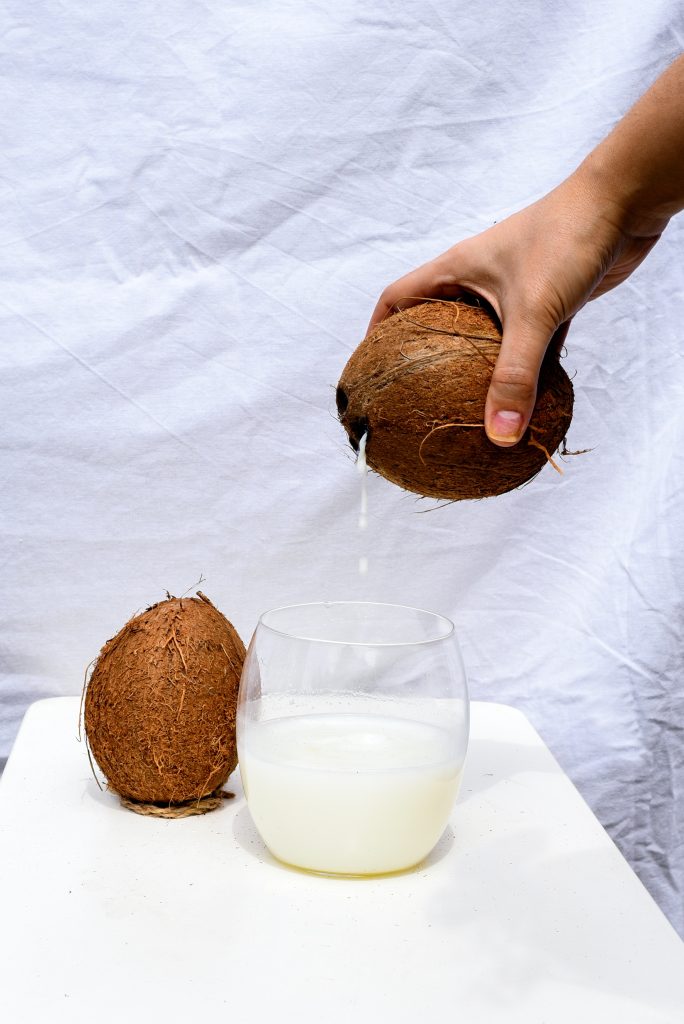

In today’s blog post, we delve into the fascinating world of nutrition and explore the benefits of incorporating essential minerals into our diets. We are excited to present a topic that is often overlooked but holds tremendous significance for our overall well-being: magnesium-rich beverages.
Magnesium, an essential mineral responsible for a myriad of functions in our body, plays a crucial role in maintaining proper muscle and nerve function, promoting heart health, and supporting bone density, among many other vital processes.
While we are aware of various food sources that contain this valuable nutrient, today, we will shift our focus to beverages that can conveniently deliver a dose of magnesium while refreshing and delighting our taste buds.
Read on as we explore nine incredible drinks that are not only delicious but also rich in this essential mineral, helping us achieve optimal health in a delightful and hydrating way. Whether you’re a wellness enthusiast or simply looking to boost your magnesium intake, this blog post is for you.
Importance of magnesium in the diet
Magnesium, often referred to as the “mighty mineral,” is a vital nutrient that plays a significant role in maintaining our overall health and well-being. It participates in over 300 biochemical reactions in the body, making it essential for various physiological functions.
From supporting energy production to promoting cardiovascular health, magnesium is involved in numerous enzymatic reactions that are crucial for optimal bodily function.
One of the primary roles of magnesium is its involvement in muscle and nerve function. It helps regulate muscle contractions, including the steady beating of the heart, and ensures proper nerve impulse transmission throughout the body.
Magnesium is essential for maintaining strong and healthy bones, as it contributes to bone mineralization and density.
Magnesium plays a key role in regulating blood sugar levels and promoting a balanced metabolism. It assists in the production and release of insulin, the hormone responsible for regulating glucose in the bloodstream.
Adequate magnesium intake may help improve insulin sensitivity and reduce the risk of developing insulin resistance and type 2 diabetes.
Magnesium also supports a healthy immune system, contributing to the production of immune cells and the regulation of inflammation. It acts as a cofactor for enzymes involved in DNA replication and repair, ensuring proper cellular function and growth.
Also, magnesium has been associated with better sleep quality, stress reduction, and mood stabilization, making it an essential mineral for mental well-being.
Benefits of consuming magnesium-rich drinks
Incorporating magnesium-rich drinks into your diet can provide numerous benefits for your health and well-being. Here are some compelling reasons to include these beverages in your daily routine:
- Optimal Muscle Function: Magnesium is crucial for maintaining healthy muscle function, including proper muscle contractions and relaxation. Consuming magnesium-rich drinks can help support athletic performance, prevent muscle cramps, and aid in post-workout muscle recovery.
- Heart Health: Magnesium plays a vital role in maintaining a healthy heart. It helps regulate heart rhythm, supports blood vessel function, and contributes to overall cardiovascular health. Including magnesium-rich drinks in your diet can potentially lower the risk of heart disease and hypertension.
- Bone Health: Magnesium is a critical component of bone structure and strength. By consuming beverages high in magnesium, you can support bone mineralization, density, and reduce the risk of osteoporosis and fractures.
- Energy Boost: Magnesium is involved in energy production at the cellular level. By consuming magnesium-rich drinks, you can help optimize energy metabolism, combat fatigue, and improve overall vitality.
- Stress Reduction and Mood Enhancement: Adequate magnesium levels have been linked to improved stress response and mood stabilization. Enjoying magnesium-rich beverages can promote relaxation, enhance sleep quality, and contribute to a more positive mindset.
- Blood Sugar Regulation: Magnesium plays a crucial role in glucose metabolism and insulin sensitivity. Including magnesium-rich drinks in your diet may help maintain healthy blood sugar levels and reduce the risk of insulin resistance and type 2 diabetes.
- Overall Wellness: Consuming magnesium-rich drinks can contribute to your overall well-being by supporting a healthy immune system, reducing inflammation, and promoting proper cellular function.
Now that we understand the importance of magnesium and the benefits of consuming magnesium-rich drinks, let’s explore the role of magnesium in the body and the recommended daily intake in more detail.
1. Green Smoothie with Spinach and Almond Milk

Recipe and preparation
Ingredients:
- 1 cup fresh spinach leaves
- 1 ripe banana
- 1 cup unsweetened almond milk
- 1 tablespoon honey or maple syrup (optional, for sweetness)
- Ice cubes (optional, for a chilled smoothie)
Instructions:
- Wash the spinach leaves thoroughly and remove any tough stems.
- Peel the ripe banana and cut it into chunks for easier blending.
- In a blender, combine the spinach leaves, banana chunks, almond milk, and sweetener (if desired).
- Blend the ingredients on high speed until smooth and creamy. If you prefer a colder smoothie, add a few ice cubes and blend again until well incorporated.
- Pour the green smoothie into a glass and serve immediately. You can also garnish with a sprinkle of chia seeds or a slice of fresh fruit, if desired.
Magnesium content in the ingredients
The magnesium content in the ingredients of this green smoothie is as follows
- Spinach: 1 cup of spinach contains approximately 24 milligrams of magnesium.
- Banana: A medium-sized banana provides about 32 milligrams of magnesium.
- Almond milk: 1 cup of unsweetened almond milk typically contains around 24-27 milligrams of magnesium.
Combined, the spinach, banana, and almond milk in this green smoothie offer a total magnesium content of approximately 80-83 milligrams.
Additional health benefits
Other than being a great source of Magnesium, it’s also a rich source of magnesium, this green smoothie offers numerous other health benefits:
- Nutrient-packed: The combination of spinach and banana provides a wide range of essential nutrients, including vitamins A, C, and K, potassium, fiber, and antioxidants.
- Digestive health: The fiber content in spinach and banana promotes healthy digestion and can help prevent constipation.
- Hydration: Almond milk adds a creamy texture and provides hydration while being a good source of vitamin E and healthy fats.
- Antioxidant-rich: Spinach and banana contain antioxidants that help protect the body against oxidative stress and support overall cellular health.
- Weight management: This smoothie is low in calories and can be a satisfying and nutritious option for those looking to manage their weight.
- Vegan and dairy-free: By using almond milk, this smoothie is suitable for those following a vegan or dairy-free lifestyle.
2. Banana and Spinach Smoothie

Recipe and preparation
Ingredients:
- 1 ripe banana
- 1 cup fresh spinach leaves
- 1/2 cup Greek yogurt
- 1/2 cup almond milk (or any milk of your choice)
- 1 tablespoon honey or maple syrup (optional, for sweetness)
- Ice cubes (optional, for a chilled smoothie)
Instructions:
- Peel the ripe banana and cut it into chunks for easier blending.
- Wash the spinach leaves thoroughly and remove any tough stems.
- In a blender, combine the banana chunks, spinach leaves, Greek yogurt, almond milk, and sweetener (if desired).
- Blend the ingredients on high speed until smooth and creamy. If you prefer a colder smoothie, add a few ice cubes and blend again until well incorporated.
- Pour the banana and spinach smoothie into a glass and serve immediately. You can also top it with a sprinkle of granola or a drizzle of honey for added flavor and texture.
Magnesium content in the ingredients
The magnesium content in the ingredients of this banana and spinach smoothie is as follows:
- Banana: A medium-sized banana provides about 32 milligrams of magnesium.
- Spinach: 1 cup of spinach contains approximately 24 milligrams of magnesium.
- Greek yogurt: A half-cup serving of Greek yogurt typically contains around 19-22 milligrams of magnesium.
- Almond milk: A half-cup serving of almond milk generally contains about 12-14 milligrams of magnesium.
Combined, the banana, spinach, Greek yogurt, and almond milk in this smoothie contribute to a total magnesium content of approximately 87-90 milligrams.
4. Pumpkin Seed Milk

Recipe and preparation
Ingredients:
- 1 cup pumpkin seeds (raw and unsalted)
- 4 cups water
- 2-3 dates (optional, for sweetness)
- 1 teaspoon vanilla extract (optional, for flavor)
Instructions:
- Rinse the pumpkin seeds to remove any dirt or debris.
- If desired, soak the pumpkin seeds in water for 4-6 hours or overnight. This step helps improve digestion and nutrient absorption.
- Drain and rinse the soaked pumpkin seeds.
- In a blender, combine the pumpkin seeds, water, dates (if using), and vanilla extract (if using).
- Blend the ingredients on high speed for a few minutes until smooth and creamy.
- Place a nut milk bag or cheesecloth over a large bowl or pitcher. Pour the blended mixture into the bag or cheesecloth.
- Squeeze and press the mixture to extract the milk, leaving behind the pulp. Continue until all the liquid has been extracted.
- Transfer the pumpkin seed milk to a glass jar or bottle and refrigerate. It can be stored for up to 4-5 days.
- Stir or shake the milk before using, as natural separation may occur.
Magnesium content in the ingredients
Pumpkin seeds are an excellent source of magnesium. The magnesium content in pumpkin seeds is approximately 168 milligrams per 1/4 cup (28 grams). When making pumpkin seed milk, the magnesium content may slightly vary depending on the amount of seeds used and the extraction process.
However, it remains a rich source of magnesium, providing a significant portion of your daily intake.
Additional health benefits
Here are some other health benefits of Pumpkin seed milk:
- Rich in essential nutrients: Pumpkin seed milk is a good source of protein, healthy fats, fiber, vitamins (such as vitamin K and vitamin E), and minerals (including zinc, iron, and manganese).
- Heart-healthy fats: Pumpkin seed milk contains monounsaturated and polyunsaturated fats, including omega-3 and omega-6 fatty acids, which can contribute to heart health.
- Antioxidant properties: Pumpkin seeds contain antioxidants, such as vitamin E and carotenoids, which help protect cells from damage caused by free radicals.
- Immune support: The zinc content in pumpkin seed milk supports immune function and helps maintain a healthy immune system.
- Potential anti-inflammatory effects: Pumpkin seeds contain phytonutrients that may have anti-inflammatory properties, supporting overall health and reducing the risk of chronic diseases.
- Digestive health: Pumpkin seed milk is a natural source of dietary fiber, which aids in digestion, promotes regular bowel movements, and supports a healthy gut.
- Allergen-friendly: Pumpkin seed milk is dairy-free, lactose-free, and suitable for individuals with dairy allergies or lactose intolerance.
- Versatile and delicious: Pumpkin seed milk has a mild and nutty flavor, making it a versatile base for smoothies, cereals, baked goods, and other recipes.
5. Coconut Water

Magnesium content in coconut water
Coconut water is a popular and refreshing drink known for its natural sweetness and hydrating properties. While coconut water is not as rich in magnesium as some other sources, it still provides a notable amount of this essential mineral.
On average, one cup (240 ml) of coconut water contains approximately 60 milligrams of magnesium. This contributes to your daily magnesium intake and can be particularly beneficial when consumed as part of a well-rounded diet.
Importance of hydration and electrolyte balance
Hydration is essential for maintaining overall health and well-being, and one of the key components of proper hydration is maintaining electrolyte balance.
Electrolytes, including magnesium, sodium, potassium, and calcium, are minerals that carry an electric charge in the body and play crucial roles in various bodily functions.
Magnesium, as an electrolyte, helps regulate fluid balance, nerve function, muscle contractions, and heart rhythm. It works in conjunction with other electrolytes to ensure proper cellular function and maintain optimal hydration levels.
When the body loses electrolytes through activities like sweating or during times of illness, it’s important to replenish them to maintain the delicate balance required for optimal health.
Coconut water serves as an excellent natural source of electrolytes, including magnesium. Along with its magnesium content, coconut water also provides potassium and sodium, which are essential for maintaining proper fluid balance and supporting nerve and muscle function.
These electrolytes aid in hydration and can be particularly beneficial during physical activity, hot weather, or times of increased fluid loss.
Coconut water is also low in calories, fat-free, and naturally contains no added sugars. It provides a refreshing and hydrating alternative to sugary sports drinks or artificially flavored beverages.
While it may not be as concentrated in magnesium as some other sources, it offers a range of electrolytes, making it a popular choice for replenishing fluids and maintaining electrolyte balance.
Staying properly hydrated and maintaining electrolyte balance is crucial for overall health, exercise performance, and recovery. Incorporating coconut water into your hydration routine can be a beneficial way to support these goals while enjoying a flavorful and natural beverage.
Also note that individual hydration needs may vary depending on factors such as activity level, climate, and overall health. It’s always important to listen to your body’s cues and ensure you’re adequately hydrated, especially during times of increased physical exertion or fluid loss.
6. Almond Milk

Magnesium content in almond milk
Almond milk is a popular dairy alternative made from ground almonds and water. While it may not naturally contain as much magnesium as some other sources, many commercial brands fortify their almond milk with additional minerals and vitamins, including magnesium.
The magnesium content can vary depending on the brand and specific product.
On average, one cup (240 ml) of fortified almond milk contains around 24-27 milligrams of magnesium. This amount contributes to your daily magnesium intake and can be a suitable option for those looking to increase their magnesium levels while enjoying a plant-based milk alternative.
Comparison with other dairy alternatives
When it comes to dairy alternatives, almond milk is often compared to other plant-based options. Here’s a brief comparison of almond milk with two common dairy alternatives in terms of magnesium content:
- Soy Milk: Soy milk, another popular dairy alternative, is made from soybeans. It is naturally rich in magnesium. On average, one cup (240 ml) of fortified soy milk contains around 47-53 milligrams of magnesium, providing a higher magnesium content compared to almond milk.
- Oat Milk: Oat milk is made from oats and water, offering a creamy texture and mild flavor. While oat milk is not naturally high in magnesium, fortified varieties may contain added magnesium. On average, one cup (240 ml) of fortified oat milk provides approximately 24-28 milligrams of magnesium, similar to almond milk.
It’s important to note that the magnesium content may vary between different brands and products, so checking the nutritional label is recommended to get the most accurate information.
When considering dairy alternatives, it’s not only about magnesium content but also personal taste preferences, dietary restrictions or allergies, and nutritional goals. Almond milk, soy milk, and oat milk all offer unique flavors, textures, and nutritional profiles.
They are suitable options for individuals who are lactose intolerant, following a vegan or plant-based diet, or simply prefer non-dairy alternatives.
Ultimately, choosing the most appropriate dairy alternative depends on individual preferences, nutritional needs, and desired taste.
Incorporating almond milk or other dairy alternatives into your diet can be a versatile and nutritious way to enjoy beverages, cereals, smoothies, and various recipes while diversifying your nutrient intake, including magnesium.
7. Black Tea

Magnesium content in black tea
Black tea, a popular beverage enjoyed worldwide, offers a range of health benefits and a moderate amount of magnesium.
While the exact magnesium content may vary depending on factors such as brewing time and the specific type of tea, on average, an 8-ounce (240 ml) cup of black tea contains approximately 7-10 milligrams of magnesium.
Although black tea is not a significant source of magnesium compared to other drinks mentioned earlier, it still contributes to your overall magnesium intake, especially when consumed as part of a balanced diet.
Other health benefits and considerations
- Antioxidant properties: Black tea is rich in antioxidants called polyphenols, which help protect the body from oxidative stress and reduce the risk of chronic diseases. These antioxidants have been associated with potential benefits for heart health, immune function, and overall well-being.
- Mental alertness and focus: Black tea contains caffeine, which can provide a natural energy boost and enhance mental alertness and concentration. It can help combat fatigue and promote productivity.
- Hydration: Despite containing caffeine, black tea can still contribute to your daily hydration needs. While caffeine can have a mild diuretic effect, the overall fluid intake from a cup of black tea can help maintain hydration levels.
- Cardiovascular health: Research suggests that regular consumption of black tea may help lower the risk of heart disease. The flavonoids present in black tea have been linked to improved heart health by reducing cholesterol levels and supporting healthy blood pressure.
- Digestive health: Black tea contains tannins, which can have a mildly astringent effect and promote healthy digestion. It may help alleviate digestive discomfort and support gastrointestinal health.
- Cautions and considerations: It’s important to note that black tea contains caffeine, which can affect individuals differently. While moderate consumption is generally safe for most people, excessive intake of caffeine may lead to side effects such as restlessness, insomnia, increased heart rate, or digestive issues. Note that some individuals may be more sensitive to caffeine and should monitor their intake accordingly.
It’s also worth mentioning that the addition of milk, sweeteners, or other additives to black tea can affect its overall nutritional profile and should be taken into account when considering health benefits.
As with any food or beverage, moderation and personal preference play a key role. If you enjoy the taste and experience of black tea, incorporating it into your routine can be a delightful way to enjoy a warm and flavorful drink while benefiting from its antioxidants and modest magnesium content.
8. Mineral Water

Magnesium content in mineral water
Mineral water is a natural water source that contains various minerals, including magnesium. The magnesium content in mineral water can vary depending on the specific brand and source. Some mineral waters are specifically marketed for their higher mineral content, including magnesium.
On average, a liter of mineral water can contain anywhere from 20 to 100 milligrams of magnesium, although some brands may contain higher or lower amounts. It’s important to check the label or product information to determine the exact magnesium content of the mineral water you choose.
Mineral water can be a convenient and refreshing way to increase your magnesium intake while staying hydrated. However, it’s worth noting that the magnesium content in mineral water is generally not as high as in some food sources or supplements.
Therefore, it should be considered as a supplemental source of magnesium rather than the sole source.
Mineral water vs tap water
When comparing mineral water with tap water, the magnesium content can differ significantly. Tap water typically contains very low levels of magnesium, as it goes through treatment processes that remove minerals.
Mineral water, on the other hand, retains naturally occurring minerals, including magnesium, which can vary depending on the water source. This makes mineral water a potentially richer source of magnesium compared to tap water.
But it’s important to consider that the magnesium content in mineral water can vary between brands and sources. Some mineral waters are naturally higher in magnesium, while others may have lower levels or be fortified with additional minerals.
While tap water is a readily available and affordable option for hydration, choosing mineral water can provide the added benefit of obtaining small amounts of essential minerals, including magnesium, from a natural source.
Basically, whether you choose mineral water or tap water for hydration depends on personal preference, convenience, and individual dietary needs.
If you’re looking to increase your magnesium intake through water consumption, opting for mineral water can be a viable choice, especially if you enjoy its taste and mineral content.
However, it’s essential to maintain a balanced diet and consider other food sources rich in magnesium to meet your daily requirements.
9. Dark Chocolate Hot Cocoa

Recipe and preparation instructions
Indulging in a warm cup of dark chocolate hot cocoa can be a delightful treat, especially during colder months. Here’s a simple recipe to prepare this comforting beverage:
Ingredients:
- 2 tablespoons unsweetened cocoa powder
- 2 tablespoons dark chocolate chips or grated dark chocolate
- 2 cups milk (dairy or plant-based)
- 2 tablespoons sweetener of your choice (such as honey, maple syrup, or sugar)
- 1/2 teaspoon vanilla extract
- Pinch of salt
- Optional toppings: whipped cream, marshmallows, or a sprinkle of cocoa powder
Instructions:
- In a saucepan, whisk together the cocoa powder, dark chocolate chips or grated dark chocolate, sweetener, salt, and a small amount of milk to form a smooth paste.
- Place the saucepan over medium heat and gradually whisk in the remaining milk until the mixture is well combined and heated through.
- Continuously stir the hot cocoa to prevent the chocolate from sticking to the bottom of the pan and to ensure even heat distribution.
- Once the hot cocoa reaches your desired temperature, remove it from the heat and stir in the vanilla extract.
- Pour the hot cocoa into mugs and garnish with optional toppings if desired.
- Serve and enjoy!
Magnesium content in dark chocolate
Dark chocolate is known for its rich flavor and potential health benefits. It also happens to be a good source of magnesium. The exact magnesium content in dark chocolate can vary depending on the percentage of cocoa solids and the specific brand or type of chocolate used.
On average, a 1-ounce (28 gram) serving of dark chocolate with 70-85% cocoa solids contains approximately 64-95 milligrams of magnesium. The higher the cocoa percentage, the more magnesium it typically contains.
When preparing dark chocolate hot cocoa, the actual magnesium content will depend on the amount of dark chocolate used in the recipe. Using higher-quality dark chocolate with a higher cocoa percentage will provide more magnesium in your hot cocoa.
Additional health benefits
In addition to its magnesium content, dark chocolate hot cocoa offers several other potential health benefits:
- Antioxidant properties: Dark chocolate is rich in antioxidants, such as flavonoids and polyphenols, which can help protect cells from damage caused by free radicals and reduce inflammation in the body.
- Mood-enhancing effects: Dark chocolate contains compounds that may promote the release of endorphins and serotonin, which are known to improve mood and provide a sense of well-being.
- Cardiovascular health support: The flavonoids in dark chocolate have been associated with potential benefits for heart health, including improving blood flow, reducing blood pressure, and decreasing the risk of heart disease.
- Brain function and cognition: Some studies suggest that the flavonoids and other bioactive compounds in dark chocolate may have positive effects on brain function, memory, and cognitive performance.
- Source of minerals and nutrients: Dark chocolate contains various minerals and nutrients, including iron, copper, manganese, and fiber, which contribute to a well-rounded diet.
Remember, while dark chocolate can offer potential health benefits, it should be consumed in moderation as part of a balanced diet. Opting for higher-quality dark chocolate with a higher cocoa percentage can provide more magnesium and fewer added sugars or artificial ingredients.
Indulging in a cup of homemade dark chocolate hot cocoa can be a delightful and comforting way to enjoy the rich flavors and potential health benefits of dark chocolate while also boosting your magnesium intake. Savor the warm and chocolaty goodness!
Incorporating magnesium-rich drinks into your daily routine is a delicious and effective way to boost your magnesium intake and support overall health. Magnesium plays a vital role in numerous bodily functions, including nerve function, muscle contractions, and maintaining a healthy heart rhythm.
Frequently Asked Qusetions
Gatorade and Powerade are two of the most popular sport drinks that are high in magnesium. Gatorade contains 15mg of magnesium per 8 fluid ounces, while Powerade contains 10mg of magnesium per 8 fluid ounces.
Both of these drinks contain other electrolytes such as sodium and potassium, which help to replenish the body after physical activity. Also, many coconut water products are also high in magnesium. For example, Vita Coco Coconut Water has 15mg of magnesium per 8 fluid ounces.
Coconut water is a great alternative for those who don’t want to consume artificial sweeteners or added sugars that are found in traditional sports drinks. It is also lower in calories than other sports drinks and can help to keep you hydrated during a workout.
Raising your magnesium levels quickly can be done through dietary changes and supplementation. First, it’s important to increase your intake of magnesium-rich foods such as leafy greens, legumes, nuts, and seeds.
You can also take a magnesium supplement to ensure you’re getting the recommended daily amount. When selecting a supplement, look for one that is chelated or citrate form as these are more easily absorbed by the body.
It’s also important to speak with your doctor before starting any new supplements to ensure they don’t interfere with any medications or other vitamins you may be taking. Finally, make sure to drink plenty of water throughout the day as this helps your body absorb the magnesium more efficiently.
Bananas are a great source of magnesium and contain 32 milligrams per medium-sized fruit. Bananas are also high in potassium and dietary fiber, making them a great snack for those looking to increase their magnesium intake.
Avocados are another excellent source of magnesium, with 58 milligrams per cup. Avocados are high in healthy fats, making them an ideal addition to salads or sandwiches. They’re also a great way to add some extra flavor and texture to smoothies or shakes.
Dried figs have the highest amount of magnesium per serving, with 121 milligrams per cup. Dried figs can be eaten as is or added to oatmeal, yogurt, cereal, or other dishes for added flavor and nutrition.
They’re also a great source of fiber and calcium, making them an excellent choice for those looking to get more magnesium into their diet.
Magnesium is an essential mineral that plays a role in many bodily functions. Herbs are a great way to get magnesium into your diet. Some of the best herbs for providing magnesium include:
Chamomile: This herb has been used for centuries to aid with relaxation and sleep, but it is also high in magnesium. Just one teaspoon of chamomile contains 8% of your recommended daily intake of magnesium.
Sage: Sage is known for its ability to improve brain function, but it also contains a good amount of magnesium. One teaspoon provides 5% of your daily intake.
Parsley: Parsley is often used as a garnish on dishes, but it’s also packed with nutrients including magnesium. One teaspoon contains 4% of your daily intake.
Related articles
27-interesting-types-of-bread-from-around-the-world/
16-energy-drink-and-caffeine-content-of-them/
top-15-best-coconut-water-brands-reviews-in-2023/
9-low-calorie-fruits-a-delicious-and-nutritious-way-to-stay-healthy/
unveiling-the-nutritional-marvels-exploring-the-remarkable-health-benefits-of-cashews/
healthy-chocolate-peanut-butter-banana-smoothie-recipe/
30-delicious-and-nutritious-baby-foods-for-weight-gain/
black-eyed-peas-cowpeas-benefits-and-nutrition-facts/
Conclusion
Throughout this blog post, we have explored a variety of drinks that are high in magnesium, each offering its unique set of flavors and health benefits. From green smoothies with spinach and almond milk to dark chocolate hot cocoa, these drinks provide a tasty and convenient way to increase your magnesium levels.
Other than magnesium, these drinks also offer additional health benefits. They contain a range of nutrients, antioxidants, and other beneficial compounds that support cardiovascular health, brain function, mood, and overall well-being.
By incorporating these drinks high in magnesium into your diet, you can enjoy a well-rounded approach to nutrition while satisfying your taste buds.
Remember, while these drinks can contribute to your daily magnesium intake, they should be consumed as part of a balanced diet. It’s essential to listen to your body’s needs, consider individual dietary requirements, and consult with a healthcare professional if you have any specific health concerns or conditions.
